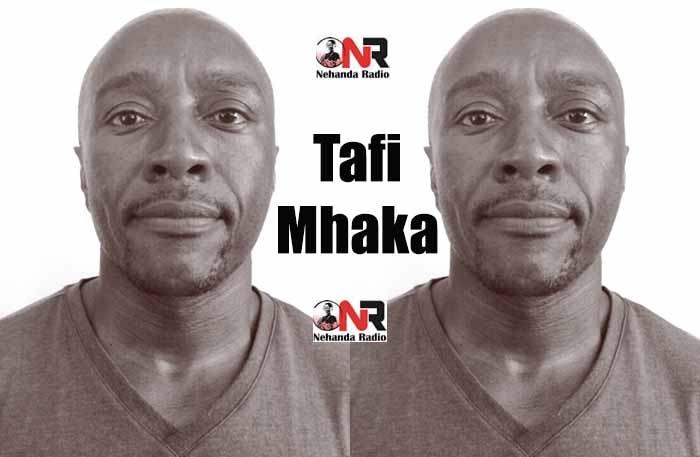By Tafi Mhaka
I could not understand why I was struggling to secure accommodation in Midrand, Johannesburg, a while ago. I had called on plenty of property firms to check on the availability of a slew of lovely properties that I had seen advertised in the local newspaper, but I was always out of luck and seemingly phoned much too late all of the time.

However, on one rare and unforgettable occasion, a woman of East European descent helped me secure an appointment to view a small, cosy apartment located in a quiet, leafy complex in Vorna Valley. Yet once I had enjoyed an inquisitive look around the duplex apartment, I also discovered that the young, white female owner of the property was rather uncomfortable in my presence; and although she needed a new tenant to move in urgently, an unsubstantiated and crushing word of disapproval followed the chillingly cold welcome the next day.
But I found a place at a brand-new complex and did not have to pass an appalling vocal examination over the phone and overcome Hendrik Verwoerd-like philosophical whims just to survey a property. I actually found the place through an agency hired to place tenants without prejudice.
So I never met the white owner of the place and never heard from him – until I decided to move out a month before the lease agreement expired. I left after eleven delightful months living there and moved to a fabulous complex near Midrand High School.
When I had become accustomed to doing groceries at a new shopping centre and travelling on a fresh traffic route every morning, I began to understand how racial dynamics influenced life in the intimate residential setting. Everything – from who smiled at you, said hello and waved at you in the mornings, to who helped you with a box of matches when the lights went out unexpectedly – depended on race.
So if you had a dead battery in the morning and needed a small push down the driveway or a quick jump with electric cables, you would have to walk all over the complex to see who could actually help you. For they had to be black. They had to be Indian. They had to be white. They simply had to be of the right race. And while I was different and did not view life that way, that is how ridiculously unhomely, demeaning and racially classified the place was.
But I repelled the excruciating embarrassment I experienced all too often, and subsequently avoided the unpleasant rash of racial seclusions that engulfed the residential settlement, by suppressing the innocuous and expansive accumulation of hopeful idealism and humanity raging inside of me.
Pitch-black in complexion and tired of constant humiliation and quiet, undeclared rejection on the basis of skin colour, I feigned incredible indifference to needy situations that required communal responses, forged social boundaries of my own and intentionally missed the clear presence of people that I lived with in the glare of broad daylight.
I always hid behind an acutely distressing sense of black pride whenever I walked around the complex, and somehow got over the uneasiness caused by the white man who lived in the house next to mine: he steadfastly refused to ever say hello to me. I learnt not to greet the Indian guy who lived by the house at the corner when I saw him at the supermarket, since he found it enormously hard, if not particularly distasteful, to greet me.
But oddly enough, I felt sorry for my nameless neighbour and bore no grudge against him. Meanwhile, I valued the warm relationship I had developed with Ahmed, a generous and humble man from Durban who always connected with people on a conversational level and helped all and sundry with advice. However, with experience, I fully appreciated how his wife and young son clearly did not approach life with similar enthusiasm for black people, especially when I knocked on their front door looking for Ahmed.
I also got along with Yusuf, a chain-smoking man who routinely encouraged his small daughter to play games with my son. Still, quite a number of families in the residential complex eschewed interracial relationships and held all-black, all-Indian and all-white parties for kids once in a while.
And when multiracial gatherings happened at a local restaurant, the kids would play and mingle freely, while emotionless and uncommunicative parents dithered hopelessly amid the strained silence of suspicious red lines.
Even weekly Christian prayer meetings convened in the complex seemed to be divided along racial lines. Only black people ever attended the prayer meetings held at Sbu’s house on Wednesday evenings. Then, when you wanted to go out and relax in the company of friends on a Saturday, one had to work through colourful considerations before walking through the doors of a conservative establishment brimming with blind faith in humanity.
But I am hopeful nowadays, and still remember the day South Africa won the 2007 Rugby World Cup, and delirious shouts of joy coming from the unfriendly man who lived next door pierced my living room walls – as I was celebrating a famous win for John Smit and company. (What do you know, then? We actually had something in common.)
However, his unwillingness to accept this African soul as an equal social being surprised me. I knew that exchanging pleasantries with him now and again and making small talk about the Springboks would not have been a bad thing. But he appeared determined to follow the cynical herd and build a massive wall around himself.
Which is why I willingly eschew the vapid, self-serving validation that racial identity generates. Race plays no role in determining whom I respect and choose to associate with in life. And if I had to do it all over again and find a residence in dehumanising circumstances, I would not change a thing. I would hold my head high and pray for better “luck” this time around.






